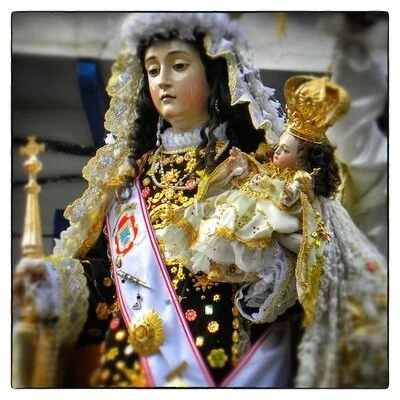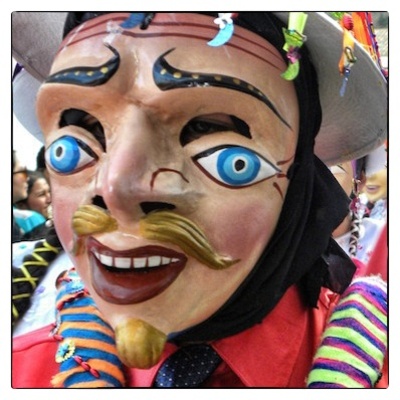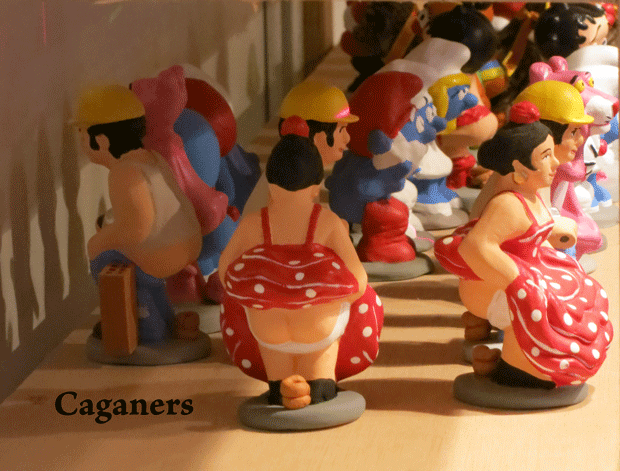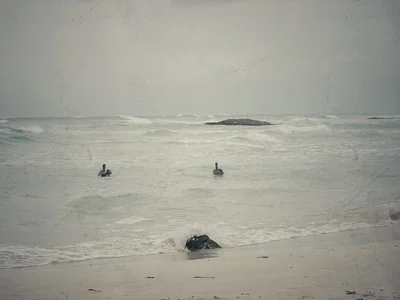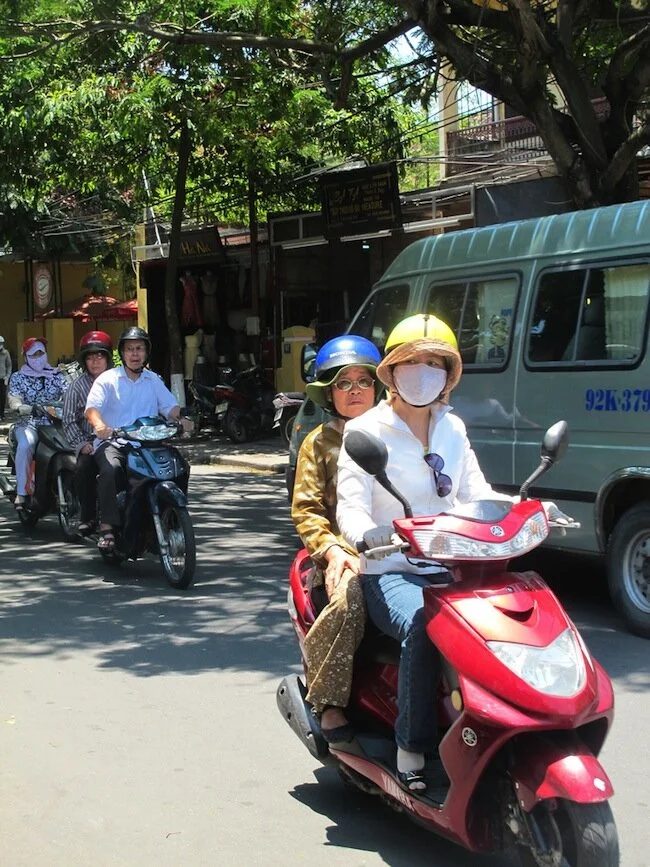What If Something Happens?
Squeezed between napping young people in a tour van, I doubted that this Virgin del Carmen dance festival weekend was a good idea. I’d finished my bottle of water. The driver was swerving down rough roads toward a Peruvian village 3,200 meters high. Weak and dehydrated from several medications, I felt nausea with each lurching switchback.
When I planned this July weekend in remote Paucartambo, I imagined the fun I’d have. Tripping around in my long, ruffled skirt—while sipping a pisco sour--I’d hitch up my skirt and join Peruvians, dancing in the street.
Paucartambo, jammed with visitors for Festividad de La Virgen del Carmen, had limited lodging options. In the rear of the van, my back-up bottle of water was buried under luggage. Trucks, vans, cars, carts and visitors with daypacks blocked our way. We parked near a school so we could camp there for the night, but could not unload. After an hour in the parking lot, a tardy local woman unlocked the school room. I unzipped my duffel and gulped all the water I could hold.
Before I left home, my younger sister, Judy, who seldom travels, had shared her concern. “Isn’t Peru a developing country?” she asked and then began scolding, “You’re 78 years old! And you’re going to Peru?”
During the six-block walk to the plaza, we strolled past market stands stacked with alpaca blankets, fuzzy sweaters, striped ponchos and ear-flap hats. We were clearly in Peru. Two-story buildings with blue balconies overlooked the plaza on all sides. Standing on the sidewalk, I strained to see costumed performers parading down the street. My sister had said, “What if something happens?” Yet, as I surveyed the crowd, the festival scene looked safe enough to me.
I’d not come to Paucartambo alone. A company called Apus-Peru had organized this tour group. Our bilingual guide, Arturo, said there were 18 comparsas (parading dance troupes) this year. Drums beat, masked faces smiled, and boots stomped as each comparsa danced toward the church.
Unable to sit down anywhere, I felt my legs begin to ache. One comparsa portrayed doctorcitos (little doctors). Others troupes acted as lawyers, or masters and slaves. When a slave master flicked his whip toward our tour group, I jumped quickly out of the way. Men in face masks with huge red noses made sport of beer drinkers; yet another glassy-eyed troupe mocked gringos like me.
Back in the school room, we perched like giants on tiny school chairs, and dined at low tables. The trout filets, rolled around vegetables and simmered in a mushroom cream sauce were delicioso! After dinner, we chugged down mugs of “macho tea,” hot, black, sweet tea spiked with the chicha (corn liquor).
The plaza crowd was denser than ever. Runners with spinning firebrands raced around an oval track. People spoke excitedly in Spanish or Quechua, English or French. Enthralled, my legs vaguely aching, I watched fireworks in teal, magenta, silver and gold burst in the blue-black sky, raining bright bouquets. Beside me, a young man sprang back and brushed sparks from his sleeve, frowning at holes in his good Nike jacket.
During the second hour, I began to feel weak, a bit dizzy, a hot flush near my throat. While I was facing Arturo and telling him I’d walk alone back to the school, I fainted. Later, Arturo recalled that he grabbed both my hands and—fortunately—eased my fall onto the pavement.
When I became conscious, I was staring at the faces of two strangers. Both women were off-duty nurses who spoke rapidly to me in Spanish.
“They want you to breathe alcohol from the bottle,” Arturo explained.
Two other strangers—short, stocky rural women—reached under my arms to pull me up.
“No, no!” cried the nurses. Much better to elevate my legs, they believed, so I felt my long skirt slipping down, down. . .exposing my bare legs!
This was not the experience I’d planned! With help, I stood up once more. Even though weak, I insisted to everyone that I was all right.
Arturo and another man escorted me back to the school. My arms draped over their shoulders, as if I were drunk. Inside the school room, I knew exactly what to do: gulp down more water, crawl into a sleeping bag, ignore people stepping over me, and sleep, sleep, sleep.
Next morning by 6 a.m. the devout were attending the festival mass, but I was still sleeping. By 7 a.m. after eating a tasty egg fried with tomato, steamy tortillas, and hot, black tea, I felt close to normal.
Devotees of La Carmen, patron saint of mestizos, packed the plaza once more. When the festival climaxed at 3 p.m. we had a grand view of La Virgen del Carmen. The float transporting her statue moved slowly toward the plaza, held back by the crowd. To the left, on a tiled roof, costumed figures in wrinkled masks writhed, moving close to the edge. These Saq’ras, wearing devilish horns and twisted, gray wigs, made menacing gestures. To my right, a lone Saq’ra on a blue balcony reached down, as if trying to scratch me with sharp fingernails.
Every year, tradition says, the Saq’ras try to steal people’s souls. My sister had been worrying, “What if something happens?” In Paucartambo, the force of good was so strong, the Saq’ras didn’t have a chance. I knew no one in this village before I arrived. Yet—in the spirit of La Virgen del Carmen--Arturo and four other good people came promptly to help.
About the author:
Travel to 47 countries has given Sally McKinney a unique perspective on the world and its people. As a shy child in Valparaiso, Indiana, she loved reading books and playing outdoors. In summers, her family took road trips around the United States. After her long marriage ended, she helped support four teenage boys with business and technical writing income. After her children left home, she packed notebook, maps and camera, and took off to see the world. Her travel articles and photographs have been published in newspapers and magazines in the United States, Canada, and in countries around the Pacific Rim. Inspired by a night of wild dancing in Kampala, Uganda, she began dancing twice a week for exercise in 2007. Learn more at www.DancingAcrossContinents.com
